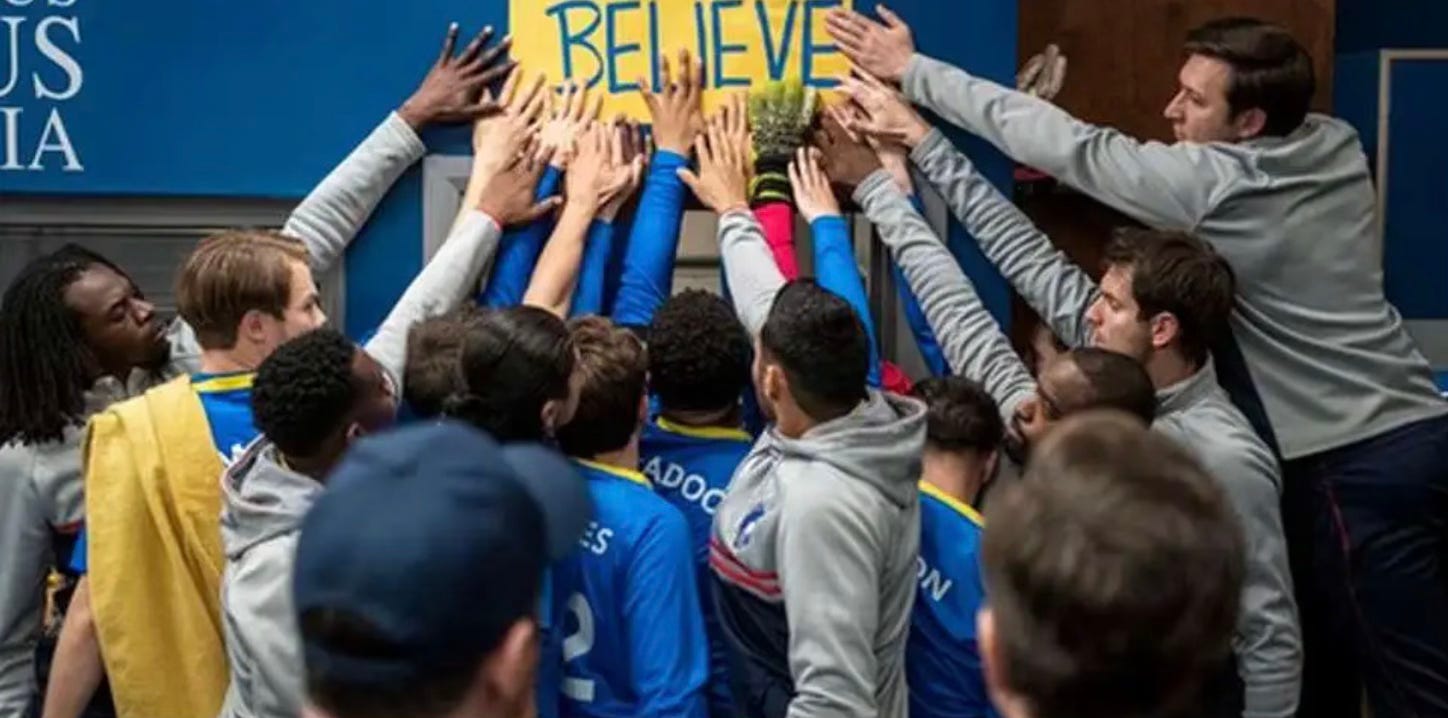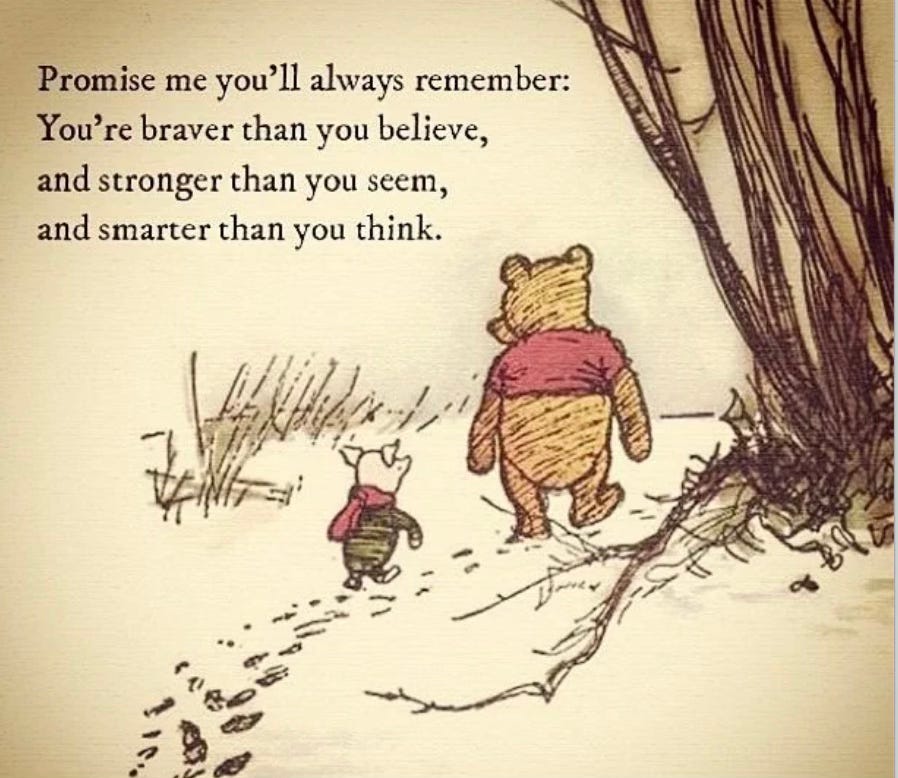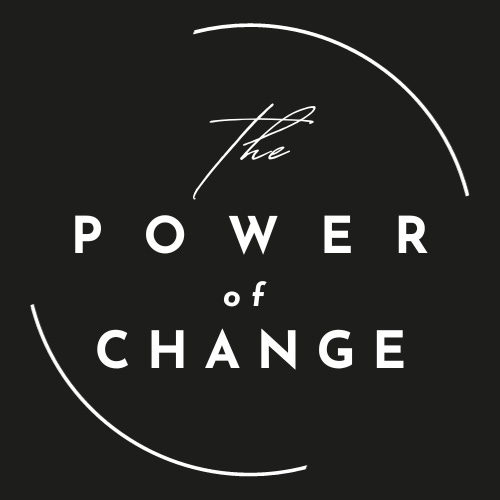At 26, a health crisis changed the course of my life.
Despite developing essential life skills during my education and early career, I quickly learned I was missing other important skills.
A study by UNICEF and UNESCO identified essential life skills as:
The ability to think critically and creatively.
Problem-solving and decision-making skills.
Effective communication and interpersonal skills.
The ability to cope with stress and emotions.
If you’ve developed these core competencies, you’re better prepared to respond to the demands of everyday life, but these foundational skills are just the beginning.
When life-altering events happen, such as sudden illness, death of a loved one, divorce, or job loss, basic life skills are not enough. They appear to cover the basics, but over time, you’re left asking, “Now what”?
When Ted Lasso debuted, I quickly became a fan of Ted’s approach to life and his belief that we all have something of value to offer, even if those values are hidden under complex layers.
For many years, I considered my life in two ways:
BS (Before Sickness)
Before becoming ill, I didn’t question my skills, and my confidence led me to a fulfilling career I loved. If I faced a challenge, I knew I would meet the expectations. I went to work and accomplished what I needed, learning in the process. I took every opportunity and made the most of it, climbing up the corporate ranks. I knew I added value to my work and maintained meaningful relationships with those around me.
AS (After Sickness)
When you wake up one day unable to lift your head off the pillow, life changes quickly. Your value becomes nonexistent. The days of being challenged and meeting those challenges were gone. Now, I was lucky to get out of bed and dressed.
My confidence quickly disappeared as the days turned to weeks and months. My faith was eroded as the medical system was ill-prepared to help and later put the blame on me.
I was no longer adding value to anything or anyone. I felt like a burden.
Those essential life skills were useless.
Brain fog left me unable to think critically or creatively.
Fevers and unrelenting fatigue left me unable to solve a simple problem or easily make a decision.
Isolation, a hallmark of chronic illness, compromised my communication and interpersonal skills.
And as months turned into years, with little help or healing, my ability to cope with stress and the overwhelming emotions that accompanied my unexpected illness was nonexistent.
Initially, I was hopeful and believed the many specialists who told me my condition would improve as quickly as it started, although they had no idea what my condition was or why it started.
I waited. And as time passed, I started to question everything I was told and everything I thought I knew.
For two decades, I peeled back the layers of my chronic illness, looking for the root cause and a name.
If you’ve dealt with chronic illness, you understand the importance of a diagnosis and a name. Once you HAVE a chronic illness, you learn that diagnoses can be wrong and that a name means nothing. In fact, an incorrect diagnosis, like the many I was given, did more harm.
The Adversity Arsenal is the result of two decades of loss:
loss of my livelihood and career
loss of confidence in my abilities and the medical system
loss of faith and trust in others
It’s also the result of two decades of learning.
Like Ted Lasso, who lived his life being curious and grateful, my curiosity, love of learning, and gratitude helped me when I needed to begin again.
The Adversity Arsenal includes ten foundational strategies and skills to carry you through any storm. I’ve written about each of these strategies individually during the past two years.
Follow the links throughout the article and browse through the archives for an in-depth look at each skill, or enjoy this overview of the complete toolkit.
The Adversity Arsenal
Resilience
Perseverance
Growth Mindset
Mindfulness Practice
Gratitude Practice
Self-love
Self-care
Self-awareness
Community
Faith
1. Resilience
Resilience is the ability to recover from difficult, harrowing experiences or unimaginable misfortune. It’s the ability to adapt to a situation and move forward.
Studies into trauma and resiliency have found that resilience is a combination of genetic factors, personal history, and the environment in which one lives. But if you weren’t born or raised by resilient parents, you can learn resilience. Anyone can.
2. Perseverance
Perserverance is the ability to maintain focus and determination over extended periods, even when progress seems slow, or obstacles appear insurmountable. Your ability to persevere is often considered a predictor of resilience.
Research has shown that those with high levels of perseverance were less likely to give up when faced with challenges, which enhanced their ability to continue pursuing their goals. Perseverance also encourages a growth mindset, which is next on my list.
3. A Growth Mindset
When you have a growth mindset, setbacks are considered opportunities for learning rather than barriers.
Stanford researcher and professor Carol Dweck, Ph. D., coined the term growth mindset and discussed how it differs from a fixed mindset in her book Mindset: The New Psychology of Success.
Those with a growth mindset believe they can change over time and that intelligence increases with hard work. When people with a growth mindset experience challenges, they’re more open to reflecting, learning, and growing from them. Failure is less threatening for someone with a growth mindset. They view their mistakes as an opportunity to learn. When you embrace a growth mindset, you see potential in every situation. One way to develop or enhance a growth mindset is through a mindfulness practice, #4 on the list.
4. Mindfulness
Mindfulness means giving attention to the present moment and observing your thoughts and feelings without judgment. Mindfulness is not meditation.
Mindfulness is:
Taking a break
Finding peace
Cultivating calm
Mindfulness allows you to uncover your intrinsic value. It’s also the first step to becoming more self-aware.
Mindfulness can be a tool to make or create change in your life or a way to become more aware of your life. There’s a difference. I began to practice Mindfulness not to make changes but to help me survive the changes that were unfolding, changes I never expected, intended, or wanted.
Mindfulness is a survival tool. It enables you to cultivate calm amid life’s storm.
5. Gratitude
When Mindfulness becomes a part of your life, gratitude often follows. While I was always grateful for my loving family and the many opportunities I had, gratitude takes on a new meaning when you suddenly lose everything you’ve worked for.
You ask, what’s left? Starting a gratitude practice was a necessity to get through each day. When I could not get out of bed, I became grateful for the comfort my bed provided. When I couldn’t leave the house, I became grateful I had a place to call home.
When my relationships faded away, I cultivated one with myself. Peeling back the layers continued in earnest, leading me to uncover and grow my three selves.
The Three Selves: Self-love, Self-care and Self-awareness
6. Self-love
Of the three selves, self-love is likely the most misunderstood, as it is defined in several ways:
An appreciation of one's worth or virtue.
Proper regard for and attention to one's happiness or well-being.
Inflated love of or pride in oneself
The last definition is the one that may stop you from developing this skill. But self-love should not be confused with selfishness.
Self-love, like self-care, enables us to accept ourselves. It means:
Being concerned for one's well-being and happiness.
Taking care of one's needs and not sacrificing one's well-being to please others.
Self-love allows you to know, accept, and love yourself. Only then are you able to love another.
7. Self-care
If you think of self-care as a trip to the day spa for a facial or massage, consider instead that self-care is:
Listening to your body and resting when you need to.
Slowing down instead of pushing through.
Letting go of other people’s opinions or expectations.
Showing kindness to yourself ( so you can then show kindness to others).
Self-care includes adequate sleep, healthy eating, and moderate exercise—basic things we all know are good for us. But do we practice self-care consistently? I definitely did not twenty years ago. I’ve learned to stop when I need to or suffer the consequences.
8. Self-awareness
Self-awareness is your ability to perceive and understand what makes you who you are, including your personality, actions, values, beliefs, emotions, and thoughts. If you’re highly self-aware, you can objectively evaluate yourself, manage your emotions, align your behavior with your values, and understand how others perceive you.
During the first years of my illness, everything about me changed except my values. I knew other’s perceptions of me had changed. Still, instead of worrying about how others saw me (sick, reserved, limited, withdrawn), I learned to acknowledge my limitations and develop a sense of self-awareness that aligned with my life. Please understand this process is not easy and can be soul-crushing while you’re going through it.
I started by allowing myself to feel every emotion that accompanied the losses I experienced. With the help of professionals, I learned I couldn’t push the pain and fear away any longer. I needed to accept it and embrace it.
Knowing the new me enabled me to get in tune with my body and mind. Meditation and Mindfulness were a large part of becoming self-aware.
By acknowledging my thoughts and feeling my emotions, I developed a new understanding of the person I was becoming. I learned to trust my decisions and follow my intuition. When I met a medical provider who dismissed me or my condition, I crossed him off the list and looked elsewhere. Slowly, I regained confidence in my abilities.
Learning to accept my situation was the first critical step in building resilience.
Whether you’re sick, well, or someone in between, you need three selves ( self-love, self-care, and self-awareness) to become the person you were meant to be. When all three align, you can start to understand your purpose.
We all have one.
But your purpose is not revealed like the latest advertising campaign in Times Square. It’s uncovered through the process of aligning these critical skills. Doing so helps raise your energy and vibration, open your heart and mind, and be receptive to the opportunities that present themselves. The next time you think about self-love, self-care, or self-acceptance negatively, consider why giving yourself the love and grace you deserve is essential.
9. Community
Meaningful relationships and human connection form the foundation of a full life, in good times and bad. Any time you find yourself navigating change or dealing with unexpected events, a community can make all the difference.
When hope turns to despair, you need to lean on others. Surrounding yourself with those who support you can give you the strength to keep going.
But where do you find a community when you need one?
I began with my default: research. I read countless books and dug into the medical literature. But I didn’t find a community there.
I found community in private Facebook groups and online chat communities. From one private group to another, I met hundreds of patients and caregivers who experienced what I had. At one time, I was active in more than thirty groups, each tackling a specific part of the illness I needed to understand.
Community taught me I wasn’t alone!
With every conversation or interaction, I gained valuable insight and much-needed support. One patient led to another, who led to new practitioners. I attended conferences and met researchers and physicians knowledgeable in the areas important to me.
Being part of a community restored my faith and trust in others. And during the long years of treatment that’ve followed, my community offers the support I often need. Filled with friends now, I continue to meet new members searching for help and support, and I welcome each one as I was welcomed so many years ago.
While I sought a community of patients with a chronic illness, communities are invaluable during many times in your life.
After the death of a loved one.
After a divorce or remarriage.
After a move to a new state or country.
Even if you have a supportive family or friends who stand by you, a community that understands your situation will become a lifeline.
I describe community as a landing pad.
A safe space. A warm embrace.
A group of like-minded individuals who share a connection and a willingness to help because they’ve walked in your shoes.
10. Faith
The last skill in the Adversity Arsenal is one I don’t write about often, but I wouldn’t have survived the many life-altering events without faith.
For me, faith means my core beliefs. Although I was raised Catholic and my faith is rooted in Christianity, it has evolved to incorporate other forms of religious belief.
Regardless of religious affiliation, most people have faith in something or someone. In Hebrews 11:1, the Bible suggests, “… faith is the assurance of things hoped for, the conviction of things not seen.” In this way, if you have hope, you also have faith.
When you lose hope, it’s easy to lose faith.
When my son became sick, I questioned my faith more than I ever had in my life. I stopped going to Church, and when Covid hit, I had the perfect reason not to go back: we were both immunocompromised and could not be in crowds of people. While I have yet to return to church regularly, my faith did not falter for long.
Just as Ted Lasso plastered the word BELIEVE for all to see in the locker room, your ability to believe in something or someone is a crucial life skill.
For two decades, I studied how to build resilience.
In the book Resilience: The Science of Mastering Life’s Greatest Challenges, authors Steven M. Southwick, Dennis S. Charney, and Jonathan M. DePierro summarize that to withstand, overcome, and grow from personal tragedies doesn’t require superior genes or a “tough of nails” approach to life. Instead, they found it possible to learn methods for becoming resilient by following the advice of people who had “been there.”
I believe resilience is a skill and an art.
Southwick, Charney, and DePierro call it a science.
I’ve found it’s less about facts and more about feeling.
The 10 strategies that make up my Adversity Arsenal are foundational life skills that helped me overcome life-altering events and build resilience. Although you may never experience a chronic illness, these skills apply to any of life’s disruptions.
By all means, start with the essential skills outlined by UNICEF, but don’t stop there. Build a foundation that can withstand any storm at any time. If you don’t know where to start, review the list and determine which skills you’d like to enhance or develop. If you’re interested in an upcoming class that digs deeper into these skills, drop a note in the comments and look for updates in 2025.
If you don’t think you can do it, consider one of my favorite quotes:
Until next week, be mindful and stay safe.
Tracy xo
If you enjoyed this post, please click the ❤️ at the end👇so more people can discover it on Substack. If it resonates with you, leave a comment and let me know how. 🙏🏻
My goal is to expand the community of The Power of Change to 10,000+ strong💪 and help improve lives in the process.
To help those questioning the direction their life is headed or those looking for inspiration for the next step.
For those who are alone and need support.
For those entering a new stage in their life - parent, empty-nester, widow/widower.
For those who are chronically ill and isolated.







The Adversity Arsenal.... how I have learned it well! Not my choosing it - everything else chose me. I had always considered these things almost like a curse, things happening from toddlerhood including all types of abuse, etc., and different illnesses.
It took a toll on my faith, and I questioned God all the time, even shook my fist at the heavens at times.
Didn't want to be here, didn't know why I was sent here and was ready to leave!
But as I'm matured and started looking at things a different way and yes, even looking back. We should look back to see where we came from and what we've come through. I began to see these what I thought was curses as actual blessings in disguise.
It didn't happen suddenly or quickly it took time.
But it did happen. And then around age 27 and forward, I've been able to use a lot of those things that happened in my very early years of growth and development to help others and set an example instead of complaining or thinking it was a curse of some kind.
Thank you for the reminder 🙏
I appreciate you sharing how your faith played a role in your journey. I often hesitate to discuss my faith online because it doesn't fit neatly in a box (I grew up in a 2 religion household), but it was so instrumental during my health crisis.
Fantastic article all around 💕